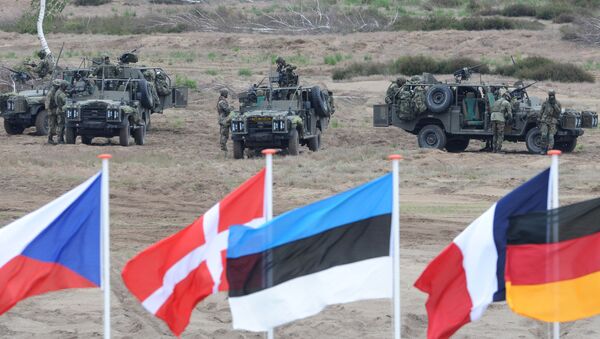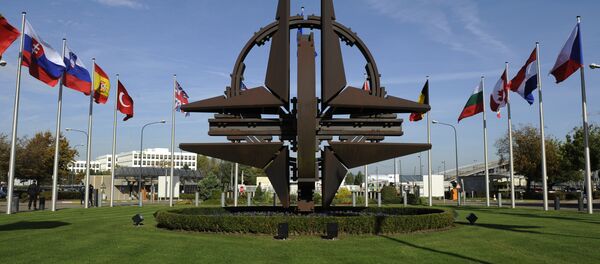"This has to do with what Pope Francis calls 'the blood-drenched arms trade.' Peace is very bad for business. War, tension? That’s very good for business," McGovern tells Loud & Clear host Brian Becker.
"In short, the tensions, which have been artificially stoked as a result of Russia’s fully expected reaction to the coup on its doorstep in Kiev, these tensions are very good for business, and they will be very good for the generals who get another star on their lapels. It’s the military-industrial-congressional-media-security services complex on steroids."
NATO and the US insist that their actions are purely defensive. But even if that’s true, the mere presence of anti-missile systems along Russia’s border increases the risk of conflict.
"It’s a balance of terror rather than a balance of power, where at the first suggestion that either side was about to attack…you can’t wait 30 minutes, you have to launch right on warning or else you lose your strategic reserve," McGovern says.
"I fully expect [Russian President Vladimir] Putin and others to authorize the kind of counter measures that would successfully defeat, or at least counter, what NATO has in mind. What the US has in mind."
While NATO promised not to expand after the collapse of the Warsaw Pact, that is precisely what it has done.
"The NATO summit, in its ‘wisdom,’ on April 3, said Ukraine and Georgia will become members of NATO. So, the US and NATO were thumbing their nose at Russian concerns," McGovern says. "When the [Ukrainian] coup took place, with the US and Western assistance…that forced the Russians to cope with this.
"I have no scintilla of evidence that the people running our [The US] policy toward Russia have any basic, rudimentary appreciation of…Russian security interests which have been paramount since Catherine the Great in the 1700s."
McGovern also addresses comments recently made by US Director of National Intelligence James Clapper, in which he called Russia’s "aggression" and attempt by Moscow to be "co-equal" to the United States.
"Clapper is simply not one to be believed," he says. "What [people] don’t know is that he was in charge of imagery analysis before Iraq. That means that the fact that he could find no weapons of mass destruction before the war is egregious. Why couldn’t he find them if they were there?
"James Clapper should retire and go live in Florida."



